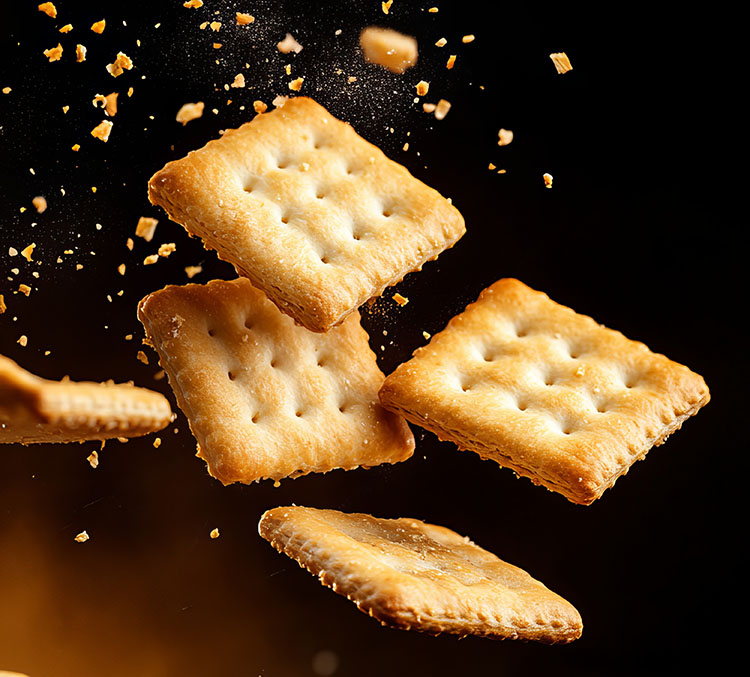
Two-stage mixing takes center stage
Two-stage batch mixing brings multiple advantages to industrial-scale baking. Two-stage batch mixing is especially suited to long-fermentation doughs, where structure and flavor are needed.
Two-stage batch mixing brings multiple advantages to industrial-scale baking. Two-stage batch mixing is especially suited to long-fermentation doughs, where structure and flavor are needed.
Artificial intelligence (AI) in manufacturing is no longer a fascinating idea – it is already here and accelerating quickly throughout many industries, especially in the baking industry. Several reasons are fueling this revolution.
Chip Czulada embarked on a new role as the President of Reading Bakery Systems (RBS) at the beginning of 2024. He shares with Baking+Biscuit International magazine his view on the first six months at the helm of the company where he has been working for over 20 years.
An entire fleet of iconic crackers built its consumer base on their open, flaky texture, which is produced by layering the dough. Reading Bakery Systems designed a new, 90-degree technology concept for the laminators manufacturing this dough.
Fully automating kneading and mixing is an ambitious endeavor, given the complexity of the process, and the diversity of raw ingredients.
Automated inspection systems are able to guarantee top product quality and safety – no exceptions allowed. In-line vision inspection technologies comprehensively inspect 100% of the products throughout the entire manufacturing process.
An internationally recognized method exists to characterize the water absorption capacity with ease and efficiency.
KPM Analytics showcases solutions that meet growing trends such as automated product inspection, process control achieved with vision inspection, processing whole wheat/high-fiber products, at-line dough quality analysis, and ingredient quality control.
Wooden Bakery of Lebanon has maintained the product quality its customers are accustomed to, throughout several, sometimes overlapping challenges over the years. To cope with the latest struggles due to material availability, the use of flour and dough rheology technologies has helped the business manage flour quality.
Reading Bakery Systems (RBS) introduced a new advanced Thomas L. Green WCX Wirecut Machine that provides more product flexibility, control, better safety features and easier sanitation than previous designs.
JAC, a manufacturer of bread cutting/slicing machines and dough processing plants, invested several million Euro in a new production facility in Lüttich, Belgium, in 2019.
“Do not disturb!” – tersely worded, admittedly, but it puts in a nutshell the demands placed on slicing machines, especially when used in branches: they must be coordinated with the shop-fittings or in a trendy black housing, occupy little space, do their job reliably, hygienically, safely and quickly, and require little maintenance.

